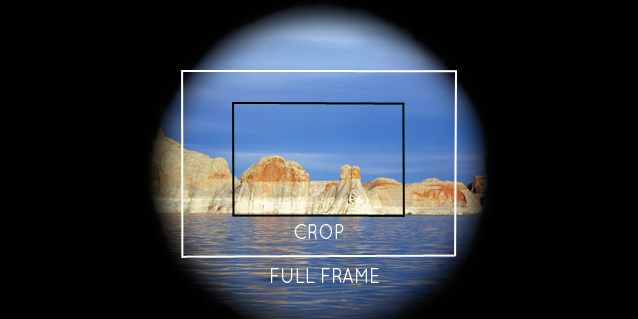Now that we've covered full-frame vs. crop sensor cameras, how do lenses collaborate with these types of cameras? Can we use any Nikon lens on any Nikon camera? Not exactly. I'll tell you why!
With a Canon camera, EFS is the term for a crop sensor lens and EF is the term for a full-frame sensor lens. With Canon, full-frame EF lenses can work on crop sensor cameras, but a crop sensor EFS lens doesn't work on full-frame cameras.
Nikon's lenses for crop sensor cameras are called EF-S and the full-frame lenses are called FX. With Nikon, you can also use FX lenses on crop sensor camera bodies; however, if you mount an EF-S lens on a full-frame camera body, the edges of your image will be dark (vignetting). The image circle of the crop lens isn't big enough to record the image on the sensor and get the full photo; you'll get dark vignetting if you take a photo with a crop lens on a full-frame camera. The example below shows what the circle of view might look like through a full-frame lens.



